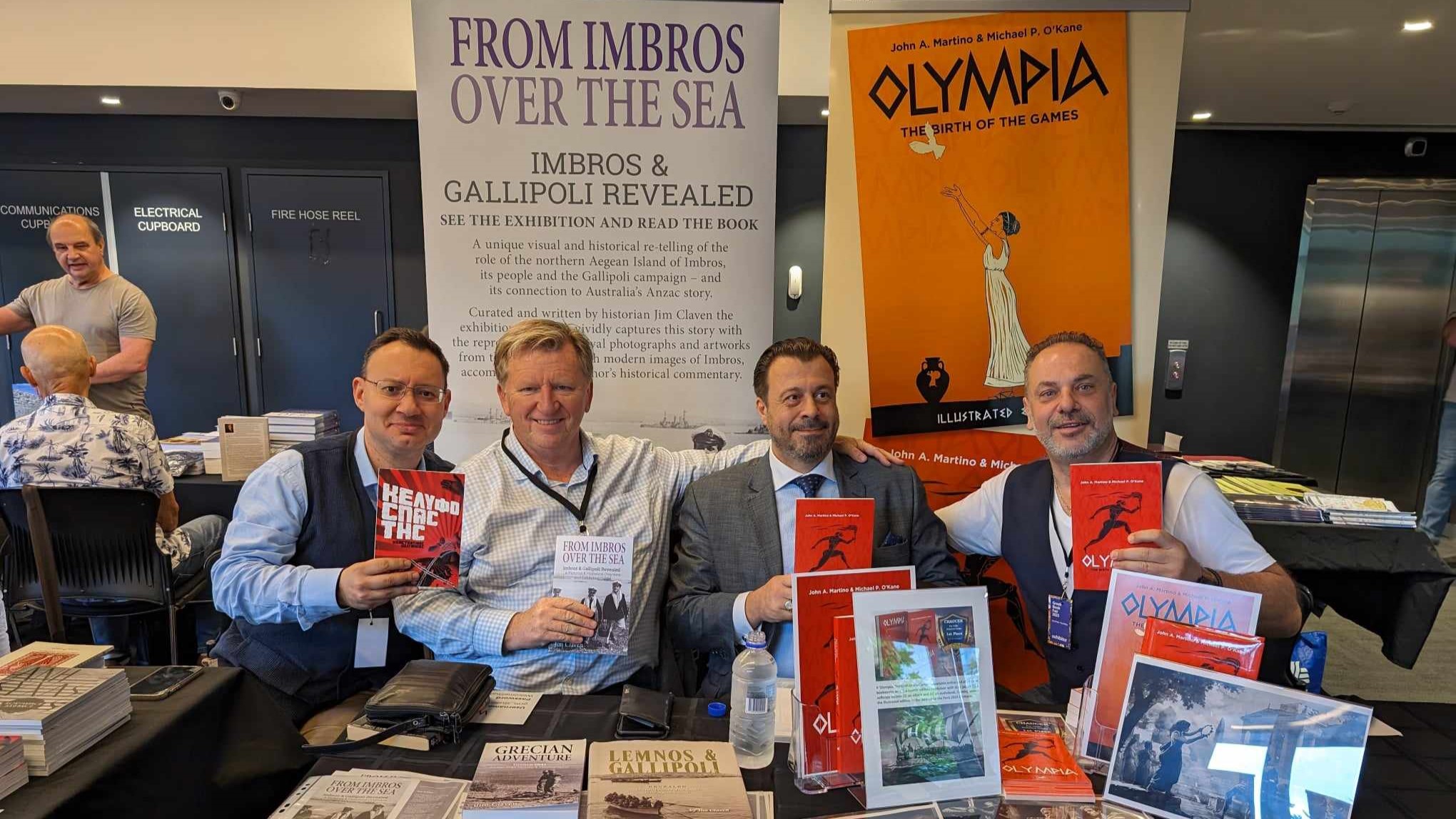By Mary Sinanidis.
The Greek Book Fair at Melbourne’s Greek Centre over the weekend showed that Greek Australian literature has come a long way since George Nicolaides’ “Letter to Mother” (To gramma tis manas) was published in newspaper Afstralia in 1913.
Dr Christos Fifis shares some of the milestones in the industry, such as the publication titled “Life in Australia” by G. Kentavros, Kosmas and Emmanouil Andronicos in 1916 that focused on the community’s achievements.
“Dr George Kanarakis studied the history of Greek authors in Australia from the pre-war years onwards,” Dr Fifis tells The Greek Herald, surrounded by piles of books he has written about the Greek community.
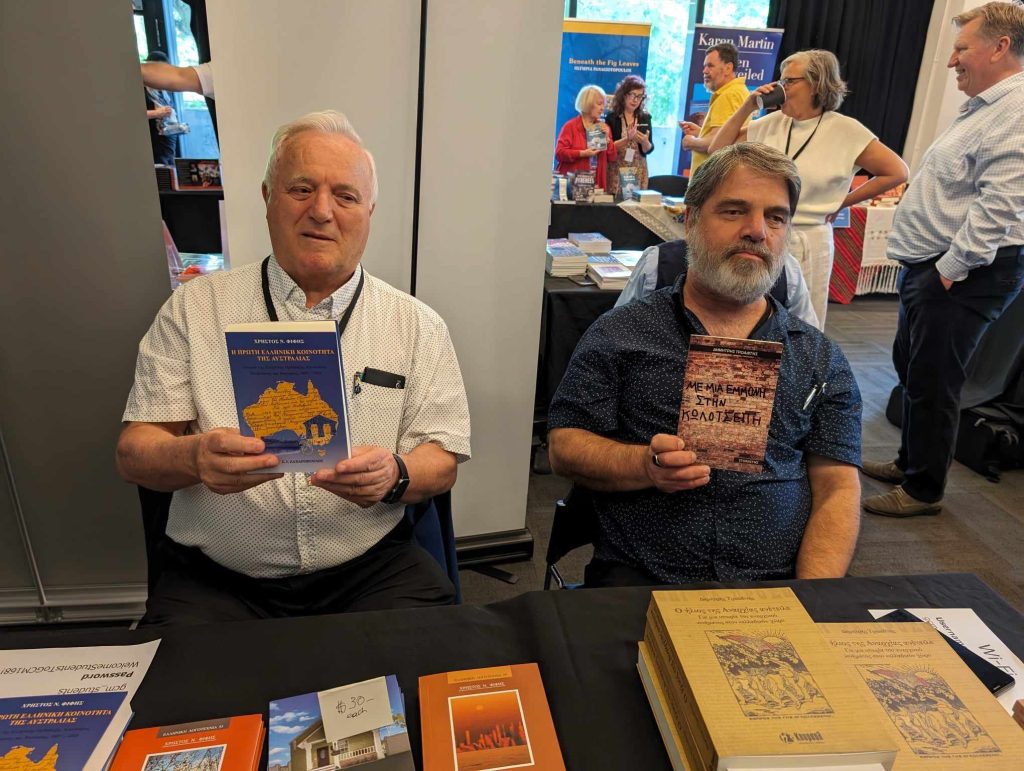
Friendship
The 30 writers are a far cry from the pioneers of Greek Australian literature. As time goes on, they prefer to write in English rather than Greek, and there’s more diversity expressed by authors like the self-proclaimed “three amigos” – John Martino, Billy Cotsis, and historian Jim Claven.
They met at last year’s book fair but really bonded at the Antipodes festival in February 2023.
“We immediately hit it off. Well, I couldn’t stop laughing. Then I went to Sydney to the Greek Festival to talk about my books and met up with Billy. Since then, we’ve been collaborating and supporting each other in various creative projects. More to come,” Claven said.
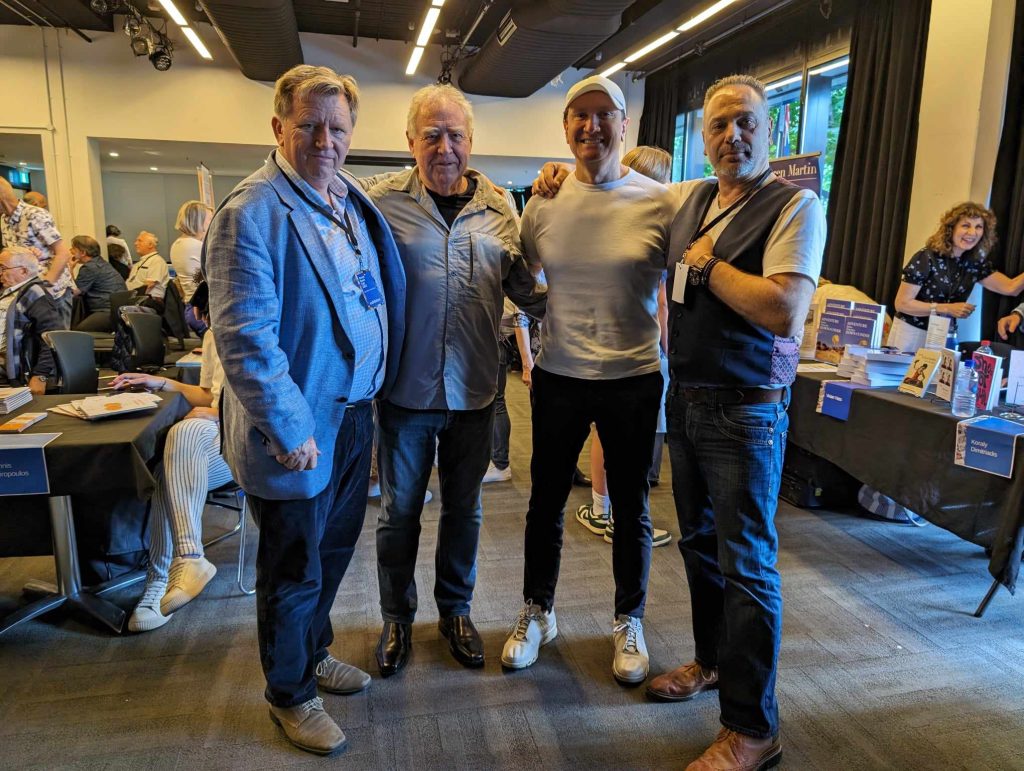
They joke that they’ll be remarketing as the “Four Musketeers” as Toorak lawyer Dean Kalimniou joins their fold. Kalimniou is well-known in the Greek community for his legal work as well as books, essays and lectures. More recently he has taken to writing children’s books, with “Soumela and the Magic Kemenche,” a book prompting young children to remember their heritage.
“In my books, I am inspired by Hellenism, and the position of Greeks abroad in a globalised framework,” he says. “I see a babel of people and situations, and I am interested and curious as to how this will develop and how it can be defined.”
Asked to look into his crystal ball and make a prediction as to where the Greek Australian community is headed, he points to “haze.”
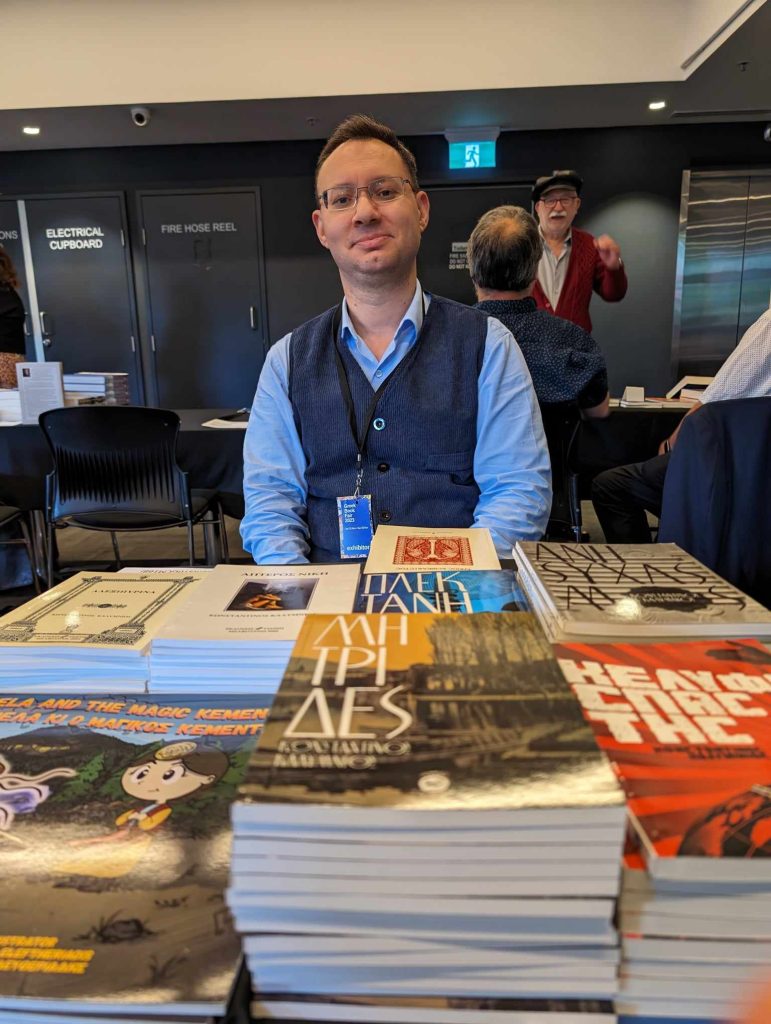
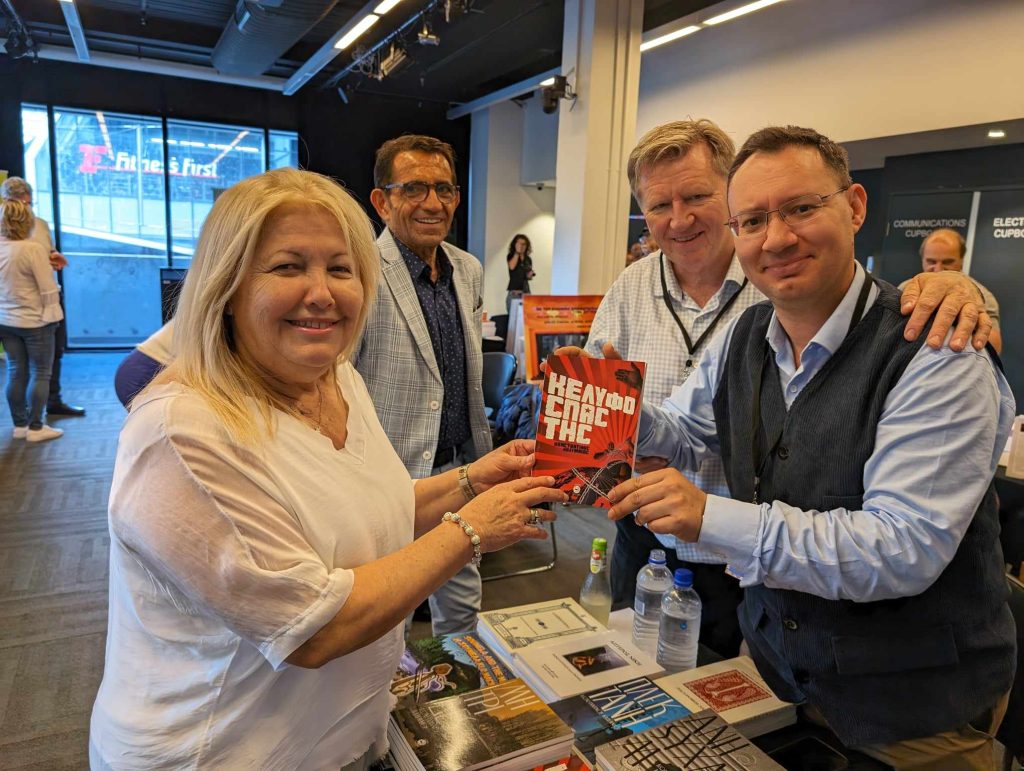
Diversity
Out of the haze emerges a blaze of colour and the anarchy of Christos Linou, an author who began his journey in 2020 when the COVID-19 lockdown put an end to his choreography. His partner suggested he write a book about his brother Jack; a self-taught artist, HIV-positive heroin user and petty criminal, who died in 1997, aged 33, from AIDS complications.
The book, “Jack Linou: The Art of an Outsider”, was launched at the National Gallery of Victoria annual art book fair due to the NGV’s interest in Jack’s artworks.
“I wanted to create a story about his life, about Greek immigration, about challenges faced by the family when everyone is achieving but one is the black sheep of the family,” Linou says. “Things have changed. Today, people with a drug issue are perceived as having a mental health issue as opposed to being stigmatised and this has changed.”
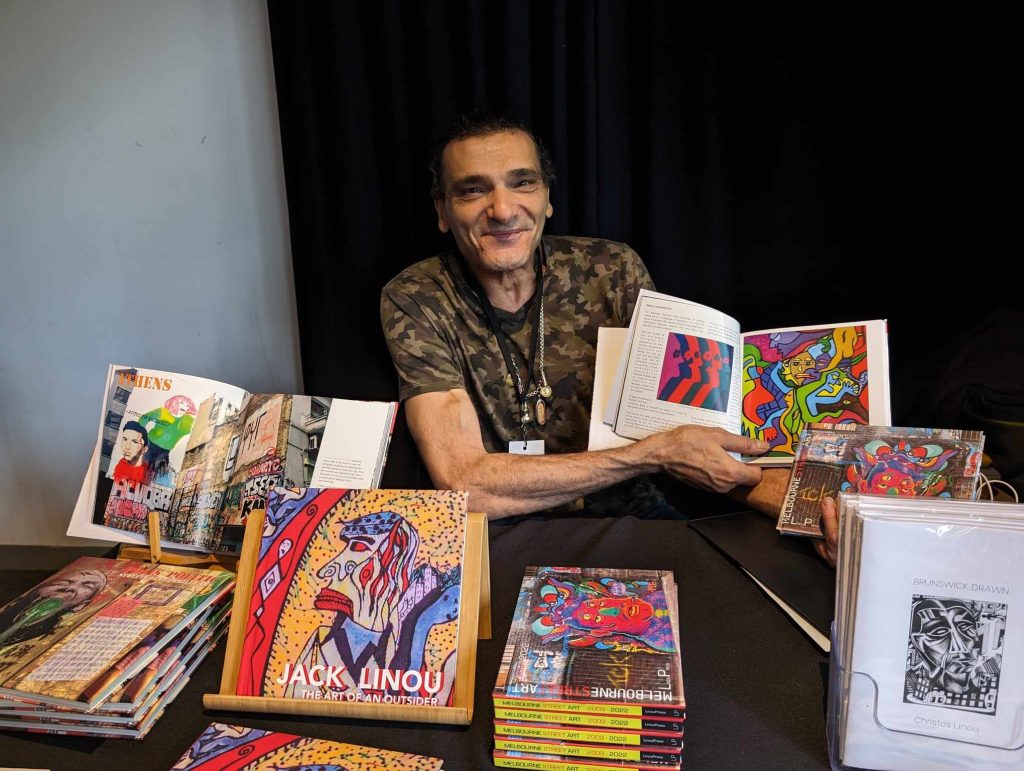
Linou didn’t stop at Jack’s story and he put together a photo book about graffiti art from around the world which has turned out to be his best seller.
“I was impressed about how Athenians created graffiti and the political messages in them,” he says, adding that he had spent over 10 years photographing Melbourne’s street art. For his next steps, he plans to research a Cyprus town known as Linou to find his family’s connection.
Asked if he is making money from his books, he has to pause to ponder.
“You can only hope to make your printing cost back and then have a bit left over,” he says.
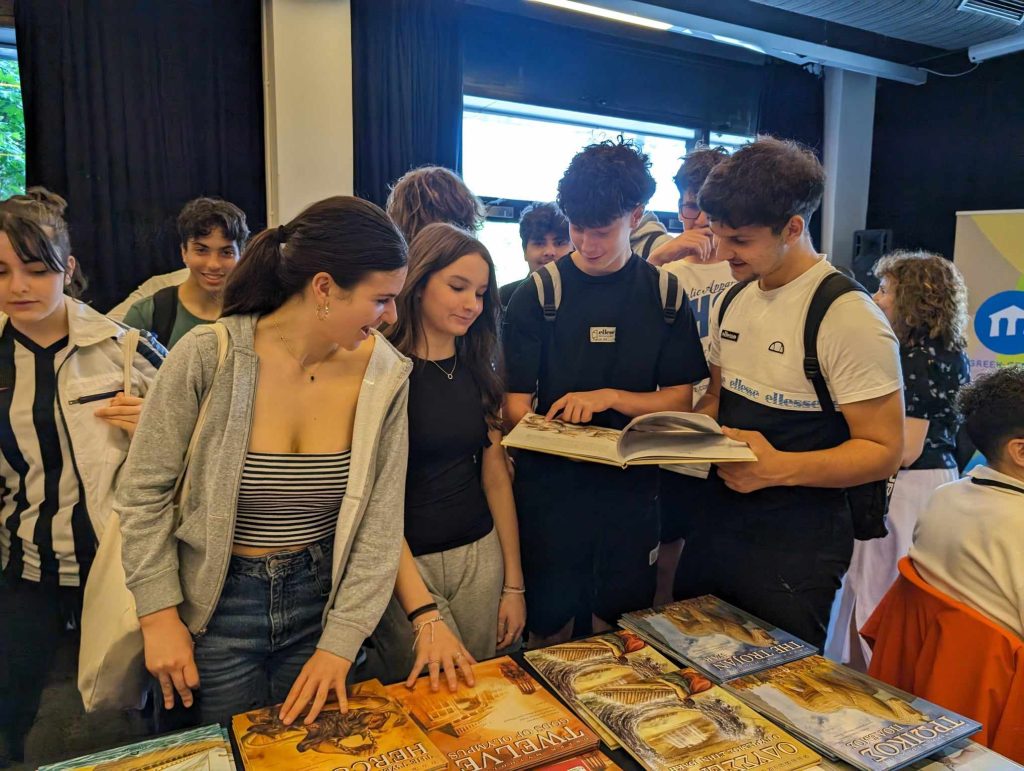
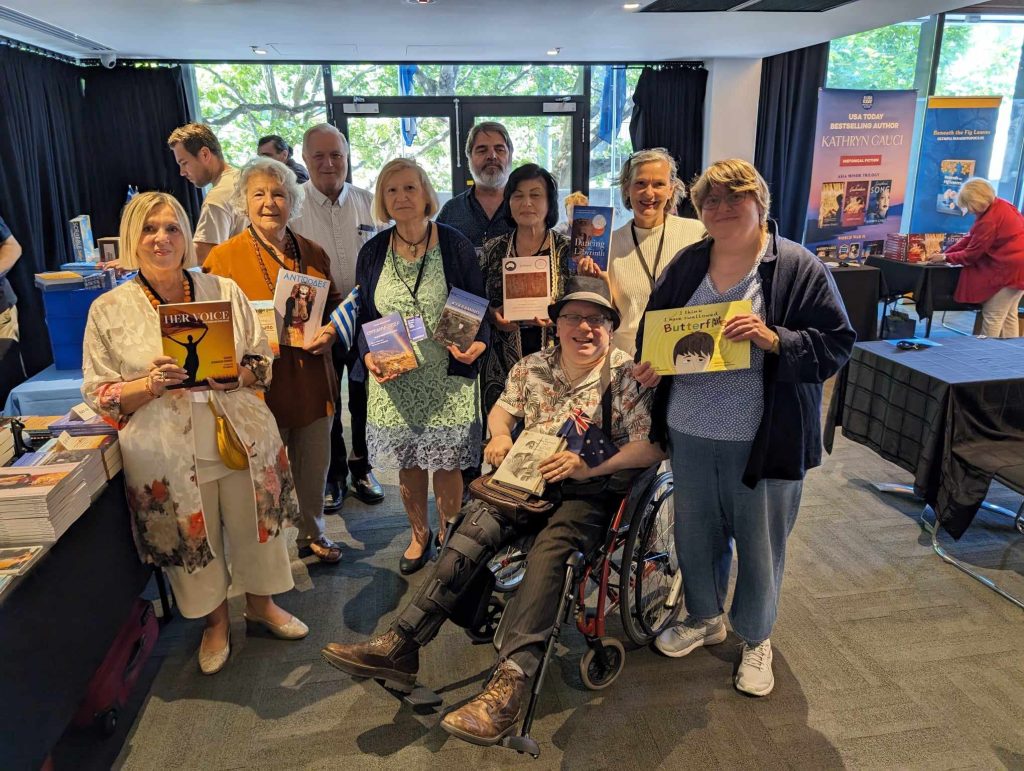
Prospective author Irene Efthymiadis takes a keen interest to our conversation.
“I’ve written two books but I’m too scared to publish them,” she says. “One of my books is about single women in Australia, no kids, no nothing, and all they struggle with. There’s a stigma we suffer. In the Greek community it’s better to be divorced than never married.”
Linou nods understandingly.
“You’ve got to crush the patriarchy, and that’s the same thing with my position, being queer,” he says.
The solution according to Linou is to “quietly do what you do, not based on your sexuality and gender.”
Elitism
Koraly Dimitriadis takes a brief accusatory TikTok video from the book fair. The Australian system is “elitist,” she suggests and tells The Greek Herald that in her 13 years as an author she has found “snobbery towards the straight Greek writer.”
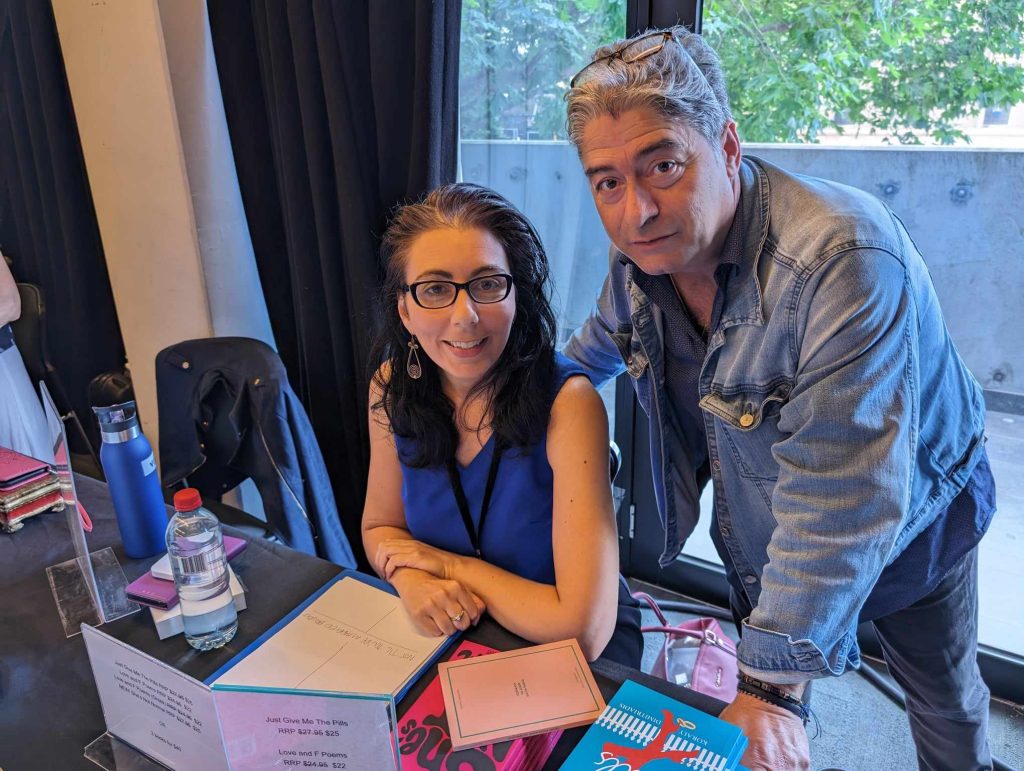
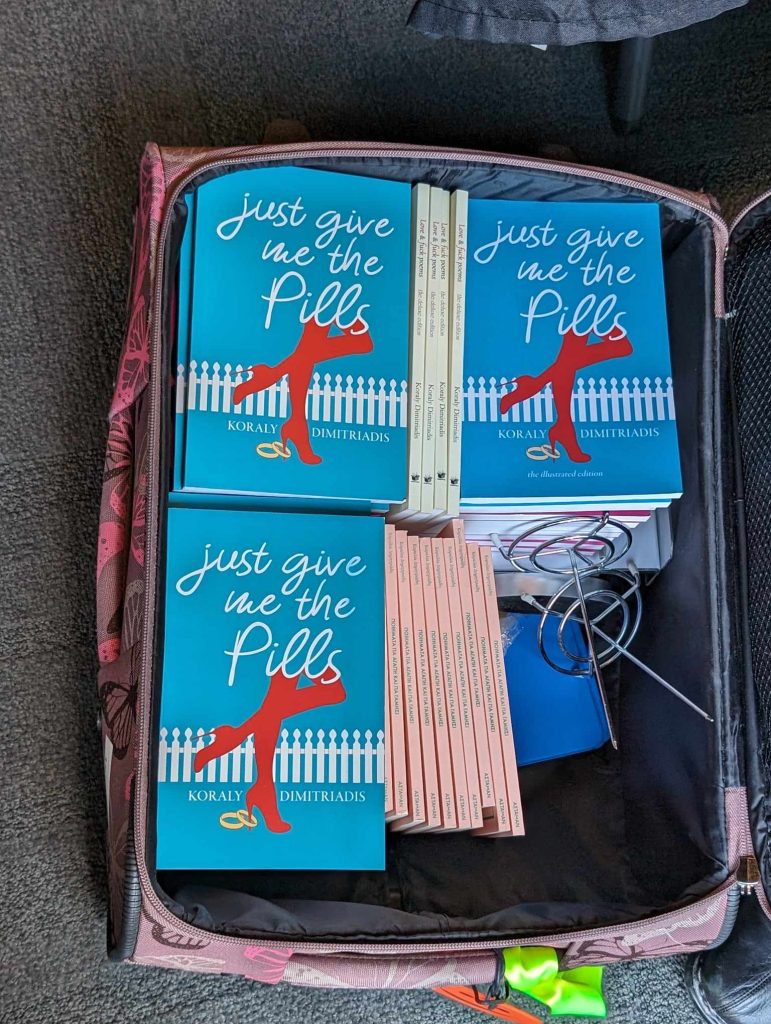
“It’s like we have nothing to offer because the Greeks have had their day and because we have Christos Tsiolkas and Peter Polites,” she says.
“But they write at the intersection of Greek-gay culture, so they have something additional to offer to the Anglo reader, which publishers believe is the main readership in Australia. It’s not. That idea in itself is racist. I feel Greek writers are shunned.
“Our style is too passionate, raw and lacks literary merit, and this idea leads to a lack of representation of Australian culture in our books. And also, where are our Cypriot writers in the mainstream literary space? We have a completely different experience, but the industry lumps us with the Greeks.”
Varvara Ioannou, head of the Food for Thought Network and Katerina Tsitouridis are present with their books giving voice to feminist perspectives. There are many female writers at the fair.
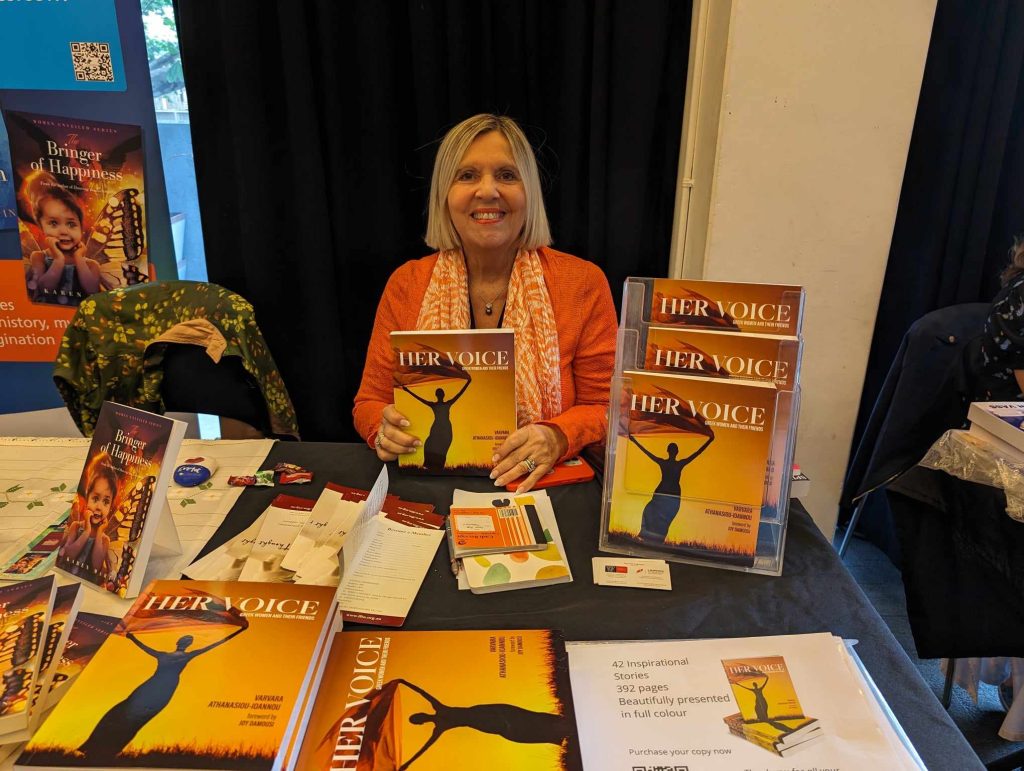
Nick Dallas from the Greek Community of Melbourne (GCM) tells The Greek Herald that all perspectives are welcome.
“It’s an open invitation. We accommodate those that apply,” he says.
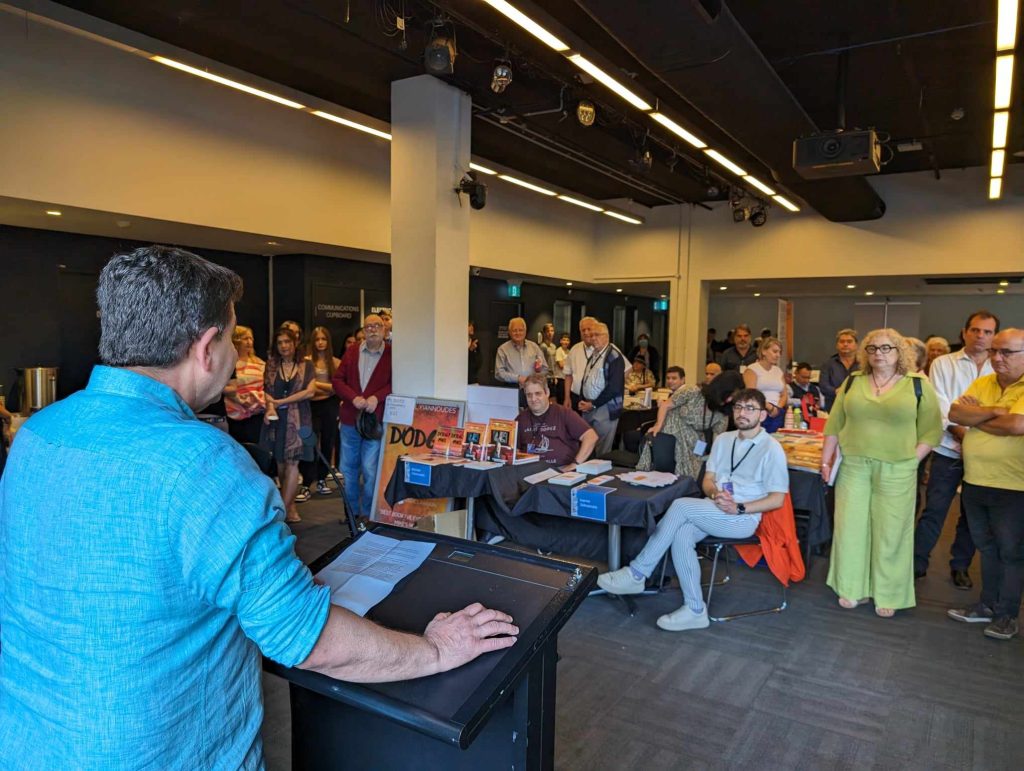
The future
It’s a Saturday morning and there are streams of students from the Greek Orthodox Community Schools of Melbourne and Victoria, also housed at the Greek Centre.
For children, Syrmo Kapoutsi has brought popular Greek publications from Diaplasi in Greek and English.
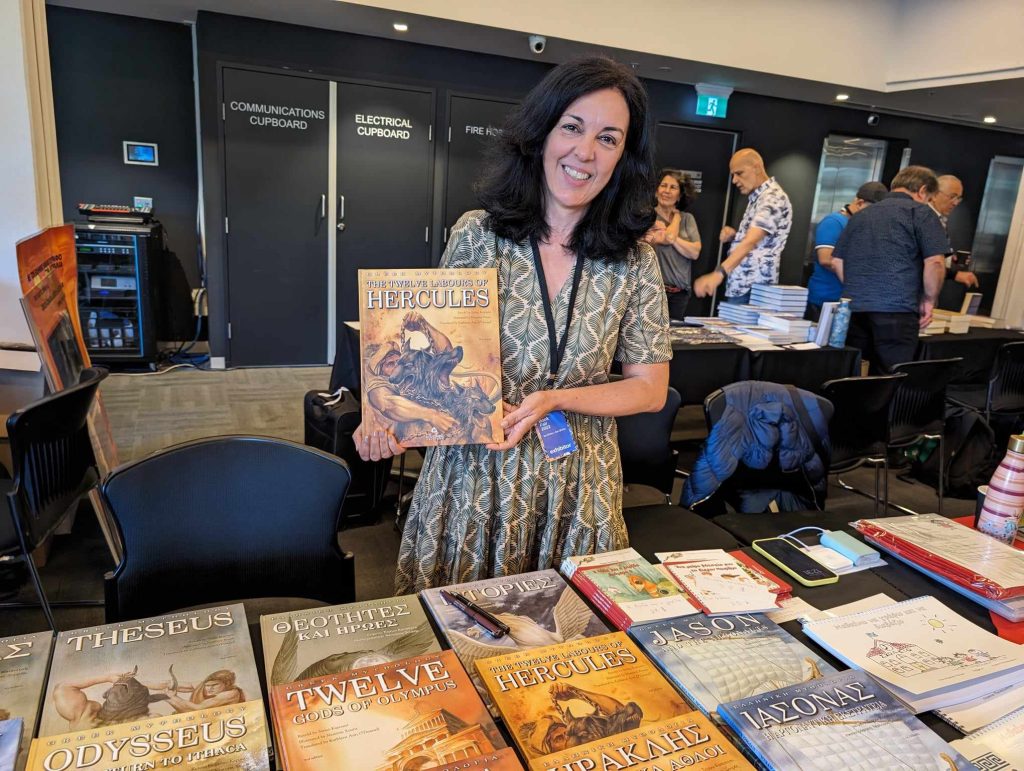
“I thought it was a good idea because, working in Greek schools, I saw the desire of children and parents to have Greek books or even books in English with Greek themes,” she says.
Authors George and Monika Athanasiou are also interested in promoting Monika’s children’s book, “I think I have swallowed butterflies.” George praises his wife’s work and it’s endearing the way he gushes, expressing the book’s value to young children suffering from anxiety.
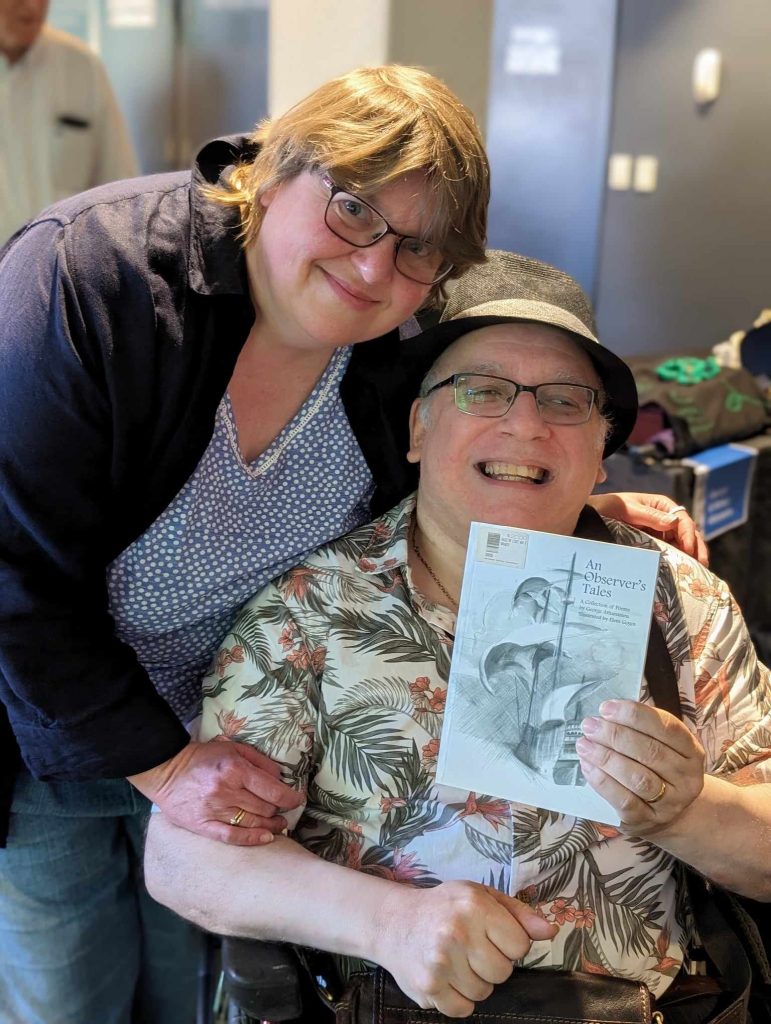
The two met when George sold Monika his book, “An Observer’s Tale.”
“We just found that we had many things in common,” he said of a love affair that began with literature.
Nick Papastergiadis, keynote speaker, gave a speech titled, “Why Books Matter,” outlining his own personal relationship with books.
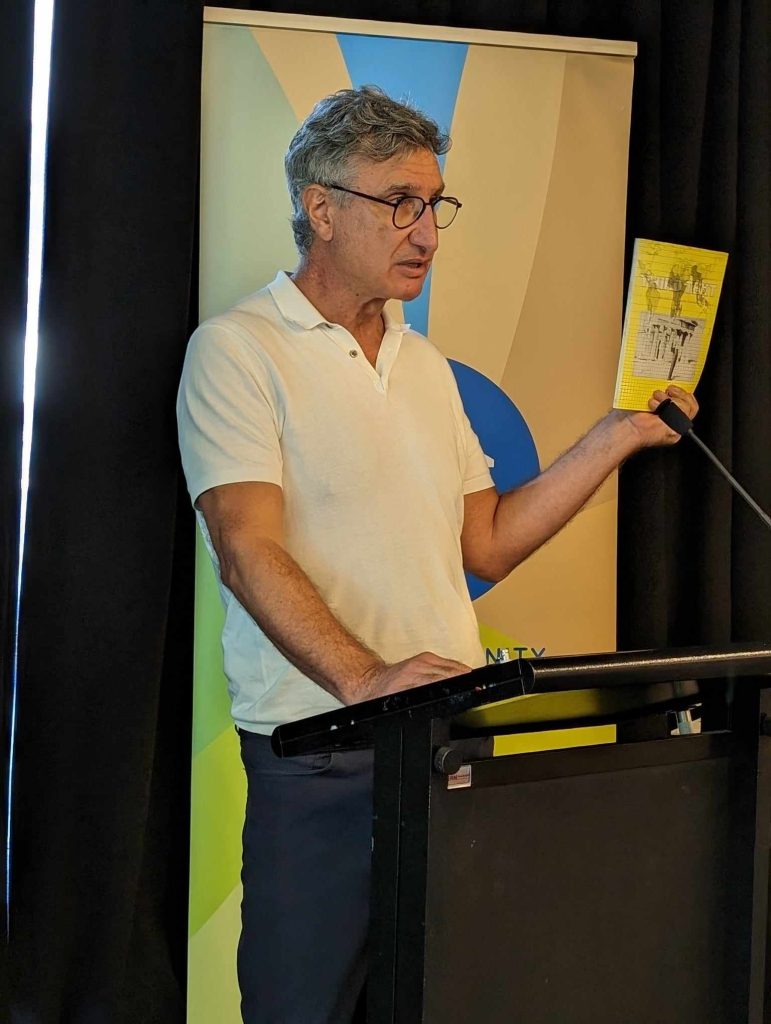
His brother, GCM President Bill Papastergiadis pointed to the event as a way to “truly reflect the cosmopolitan and multicultural fabric of our community. It is part of the narrative of our community, of our civilisation and it needs to be heard and these events are a mechanism for us to be heard generally.”
“You might think there’s 50, 100, 200, 300 people that pass through here but through the various conversations we all have that becomes 1,000, 2,000, 3,000, 5,000,” he says.
It’s a conversation that positions the Greek community at the literary centre. And, if Koraly says, the mainstream is indeed “snobbish and elitist,” book fairs such as this one can be a beacon of hope for the Greek Australian literary voice.
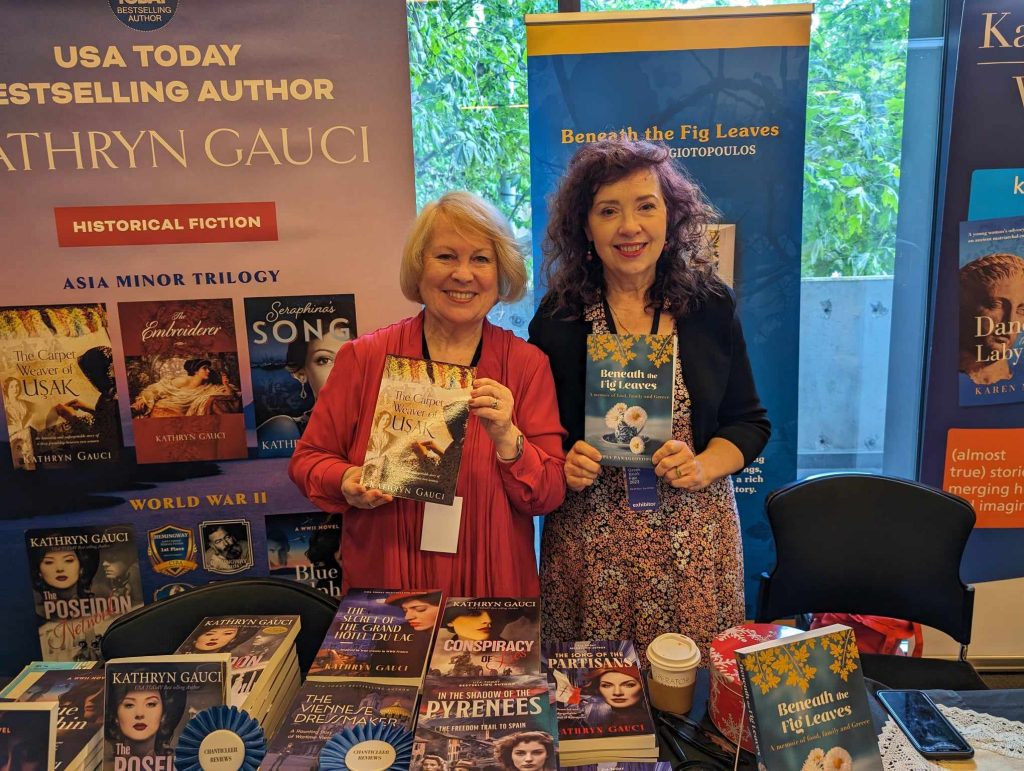
Useful information:
There are two Greek-Australian literary societies in Melbourne, both were present at the book fair.
- Greek Australian Cultural League which publishes the periodical Antipodes
- The Hellenic Writers Association of Australia which publishes the periodical O Logos
There are two libraries which house Greek-Australian publications.
- The Greek Consulate of Melbourne’s Library is at 37 Albert Road, Melbourne. Telephone (03) 9866 4524.
- The Greek Community of Melbourne’s Library is at 168 Lonsdale Street, Melbourne. Tel (03) 9662 2722.
